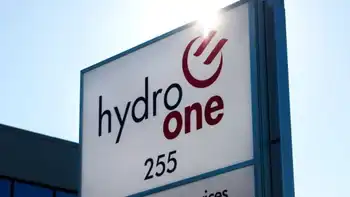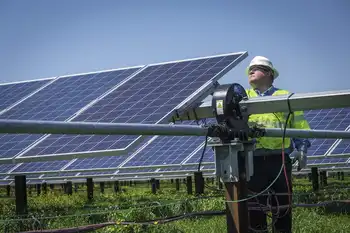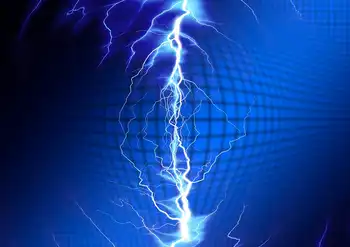A fee for using less energy
MISSOURI - Some Missouri residents and businesses soon could see a new charge on their electric bills — a fee for using less energy.
Though it might seem illogical, the new energy efficiency charge has support from utilities, most lawmakers, the governor, environmentalists and even the state's official utility consumer advocate. The charge covers the cost of utilities' efforts to promote energy efficiency and cut power use.
The assumption is that charging consumers for those initiatives ultimately will cost less than charging them to build the new power plants that will be needed if electricity use isn't curtailed.
Legislation pending before Gov. Jay Nixon would set the criteria for state utility regulators to approve the energy-savings charges. If he signs the bill, the new law would take effect August 28.
When lawmakers adjourned in mid-May, Nixon listed the little-publicized energy legislation as among his proudest accomplishments, describing it as a "good, good start on an energy policy" to be developed by his Department of Natural Resources.
"To save power is the equivalent of making power," Nixon said, "and it's a pretty seismic shift" in Missouri's energy strategy.
Usually, regulators allow utilities to recoup the cost of building power plants or buying more power to meet customer demand. Recently, the Missouri Public Service Commission began allowing some utilities to pass along to customers the cost of programs that reduce demand for electricity.
For example, the PSC approved a program in which St. Louis-based AmerenUE can offer credits to businesses that voluntarily shut down or scale back their electricity use during peak demand. AmerenUE will be able to recoup the cost for the program by increasing the rates it charges business customers.
Kansas City Power & Light Co. already has 19 energy efficiency and demand-reduction programs, said Chuck Caisley, the company's senior director of public affairs. He said the PSC is allowing the company to recoup up to $50 million of the programs' costs under a rate plan in effect through 2010.
One of the company's more popular energy-saving initiatives has provided free programmable thermostats to about 34,000 residential customers in Missouri and Kansas. KCP&L can remotely control the devices to reduce the frequency at which air conditioners run during peak demand times. The power company overrode customers' air conditioners four times last year and twice so far this summer, Caisley said.
KCP&L was among the leading advocates for the Missouri legislation.
"It will allow us to spend a great deal more on energy efficiency, because it holds us harmless" for the cost, Caisley said.
The legislation applies to KCP&L, AmerenUE and The Empire District Electric Co., the publicly traded utilities that serve nearly three-fourths of the state's population.
The utilities would have to get approval from the five-member PSC to pass on the cost of their energy-saving programs. To do that, the programs must result in an overall reduction in energy use. The legislation also requires the charges for the energy-saving programs to be listed as a separate line item on customer bills.
The U.S. Environmental Protection Agency estimates that energy-saving programs offered by utilities will add about 3 percent to the average electricity rates. But it says customers who participate in the programs could save 10 percent to 20 percent on their energy bills, and even those who don't participate might save if utilities don't have to buy more energy or build new power plants.
"It's one of those rare utility bills that actually works out to everyone's benefit," said Missouri Public Counsel Lewis Mills, the state's official consumer advocate.
PSC Chairman Robert M. Clayton III fears Missouri's heavily coal-dependent electric customers will see a sharp spike in rates if federal climate legislation limiting carbon emissions becomes law. That makes it even more important for Missourians to reduce their collective energy use, he said.
Although the PSC took no position on the Missouri legislation, Clayton said he's fine with the idea of allowing utilities to recoup costs for energy-savings initiatives.
"Any tool we can give a consumer to reduce their usage is a good thing," said Clayton, adding: "The trick is making sure the expenditure (by the utility) is a prudent expenditure and it's going to achieve results."
Related News

How waves could power a clean energy future
NEW YORK - Waves off the coast of the U.S. could generate 2.64 trillion kilowatt hours of electricity per year — that’s about 64% of last year’s total utility-scale electricity generation in the U.S. We won’t need that much, but one day experts do hope that wave energy will comprise about 10-20% of our electricity mix.
“Wave power is really the last missing piece to help us to transition to 100% renewables, ” said Marcus Lehmann, co-founder and CEO of CalWave Power Technologies, one of a number of promising startups focused on building wave energy converters.
But while scientists have long understood…




